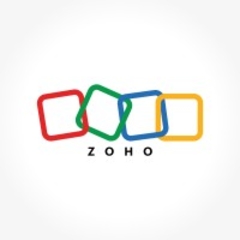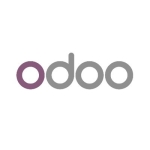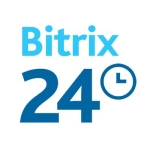What is our primary use case?
We use Zoho CRM for pipelines, proposals, and deals.
We have a sales meeting every week where we look at things, see where they are in the hopper, and talk about money for business development and campaign management.
We don't use it as a full customer relationship management solution as most people would because not everyone in the company has a license for it. Only individuals are involved in sales, bids, and proposals.
How has it helped my organization?
From a forecasting standpoint, we've been able to improve our pipeline and reporting. And we've combined two tools into one. We used to have a forecasting or pipeline product called Pipefy. We were able to do so because it is done in Zoho CRM.
What is most valuable?
The whole forecasting and pipeline management is very good.
It's a very easy tool to use.
What needs improvement?
The only thing I noticed was that it does not support multi-country operations. In Canada, for example, we do not use the term "state," but rather "province," and we do not use zip codes, but rather "postal codes." Those are things that cannot be changed.
They are constantly releasing new features, such as visibility to non-users. They've already addressed that with a feature that allows people to see sales contests and results of sales promotions, as well as who's selling the most.
They are not required to have a paid license, which is convenient. There are some people who only need to catch an occasional glimpse. The way it works is it's all-or-nothing. But that's how they're all. There is nothing new there.
For how long have I used the solution?
I have been working with Zoho CRM for six months.
We are using the Professional version with approximately eight users.
We are working with the most recent version.
What do I think about the stability of the solution?
I don't have any issues with both the stability and reliability of Zoho CRM.
What do I think about the scalability of the solution?
It did not become the world's second-largest CRM system without being scalable.
Zoho CRM is very scalable and has a lot of out-of-the-box integrations, which I'm seeing a lot in the entire software platform. It's a far superior experience to those where you have to pay every time you want to do something different.
This solution is used by eight people in our organization. It costs around $50 per month per user. We intend to double the number of users within the next year.
How are customer service and support?
Technical support has always been good. I would rate it a four and a half out of five.
They have now regionalized, and I no longer have sole support from India. They have help from people in the United States. Years ago, this was a major issue for them. As a result, they made significant corrections.
Which solution did I use previously and why did I switch?
In terms of hardware, I am still using Meraki. I haven't strayed far from that. Our team also has a slew of solutions that they've been deploying for penetration testing and threat detection.
I guess the biggest thing I've seen recently is XDR, EDR, and MDR solutions, such as SentinelOne, CrowdStrike, and Red Canary.
I know a lot about ServiceNow. I don't know anything about Jira.
We compete against ServiceNow.
We switched because it was going to be too much work for two people. Pipefy was only there for a short time. They claimed to have a CRM, but not to the extent that Zoho CRM does. We were also quite interested in the integration.
Zoho CRM can communicate with QuickBooks, Harvest, and other accounting software programs, as well as ITSM software. Because Zoho offers an ITSM help desk solution as well. As a result, we wanted to keep it in one type of organization. And it's been working out great for us.
How was the initial setup?
It was very straightforward. It was very good.
I'd rate it a four or four and a half. I tried some other solutions, such as Salesforce and NetSuite, and it was the best fit for our organization's size.
I created some sample companies and demonstrated how to set up accounts. Then the girls who do the proposal and pipeline meetings just picked it up. They were up and running in about a half-hour.
It takes a couple of hours a week to maintain this solution. I don't have anyone dedicated to the backend. That's what we heard when we looked into Salesforce and a few other companies there is a high level of customization required.
What about the implementation team?
I installed it myself without any training.
We did it ourselves, but we did collaborate with a local integrator because I wanted someone I could call on. I didn't want to be talking to someone in another country if we got into trouble. I worked with a Toronto-based company to get the licensing. If we have any special requirements, I go to them.
What's my experience with pricing, setup cost, and licensing?
We pay a subscription. The license is the subscription where we pay $50 per month per user.
Zoho CRM pricing is very affordable.
There are no costs in addition to the subscription fees.
Which other solutions did I evaluate?
We researched Salesforce and NetSuite. Those were the two largest ones we looked at, but they weren't a good fit in terms of size.
What other advice do I have?
I don't do anything with hardware. My last six months have been focused on ITSM tools. Ivanti, Cherwell, and a new one we just discovered, Halo, which you might find very interesting. Halo is going to completely transform the market.
That is primarily what I do as an ITSM, Information Technology Service Management solutions. I just got a demo of a very interesting tool that does service discovery and relationship management to assist in the creation of a CMDB for an ITSM solution.
I haven't looked at Rackmount servers.
It's very straightforward and easy to use, with a lot of customization options and good integrations. I work as an IT software consultant, naturally, I'm going to be biased, however, it has proven to be extremely effective.
I still give the overall product a 9 out of 10. Good flexibility, excellent support, ease of implementation, and low cost.
Which deployment model are you using for this solution?
Public Cloud
Disclosure: My company does not have a business relationship with this vendor other than being a customer.























